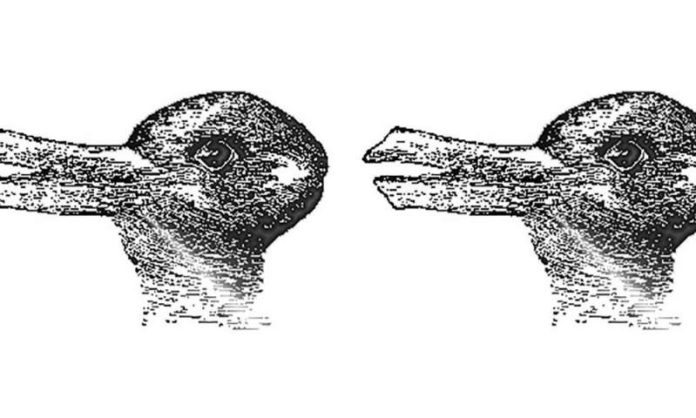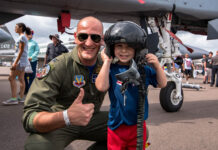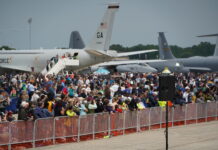2013 is shaping up to be one of the most impactful years that the air show industry has ever experienced. In spite of federal budget cuts, grounded jet teams and canceled air shows, our industry has not wavered in its commitment to deliver the most professional product possible to North American air show spectators.
Performers are rethinking the nature and content of their performances to increase entertainment value. Event organizers are rethinking ramp layouts, marketing strategies and public relations opportunities. For better or worse, we as an industry are evaluating past practices and determining the cost of continuing “business as usual” versus life in the sequestered world. The same is true here at ICAS headquarters. Some academics will use the buzzwords “paradigm shift” to describe this process. Others may consider the term to be just a “flavor of the month” catchphrase. When physicist Thomas Kuhn first discussed the idea of “paradigm shifts,” he used this picture of a duck as an example:

If you’re told that you’re looking at a duck, Kuhn explained, your mind immediately sees the duck in the image. When you are shown the picture without any comment, you may see a duck. Or, you may see a rabbit.
Our perceptions can be influenced by the suggestion that we think a certain way. A paradigm shift occurs when someone, who had always seen the image as a duck, is suddenly able to also see the rabbit
The term “paradigm shift” — in popular use for many years — is a fair explanation of what is taking place within the air show community today. As a dedicated football fan, I prefer to use a simpler term that meshes with my vernacular: “moving the goal posts.” In the NFL, moving the goal posts (and all subsequent rule changes regardless of the positive impact on player safety) was at first met with reluctance from players. This is not unexpected, as the laws of physics note that an object at rest will tend to remain at rest. It is only when the new definition of “normal” becomes commonplace that it is accepted.
At ICAS headquarters, this shift in the understanding of “normal” has a long history as it relates to our ACE program. While the program has provided substantial benefits to the air show community — in the 22 years since ICAS first assumed responsibility for its administration back in the winter of 1991 — the idea of transferring its day-to-day management from the FAA and Transport Canada to ICAS was initially met with stiff resistance. It was only after ICAS had been running the program for several years that opposition dissipated and ICAS operation of the Statement of Aerobatic Competency card process became the “new normal.”
A number of high profile accidents in 2011 have created a new base-level perception of air shows in the eyes of both the public and regulators. And, although the increased scrutiny has brought with it the opportunity to showcase the degree of professionalism within our industry, the uncomfortable truth is that our present system has not always met the measure of professionalism that is, and should be, expected in order to accomplish its initial goal.
This year, in effort to improve the system and shift the paradigm, the ACE Committee is once again challenging preconceptions and working to introduce positive change. The committee has begun a long-needed discussion on the ACE program’s purpose, goals and expectations. That conversation will continue throughout the year and into the next as we all work toward development of the newest “new normal.”
As we enter the heart of the 2013 air show season, it’s useful for all of us to reflect on the processes for which we are individually responsible and how we might look at them from a slightly different perspective. If we can manage to see a rabbit where we had previously seen a duck, we will open ourselves up to innovative and potentially industry-changing ideas.








